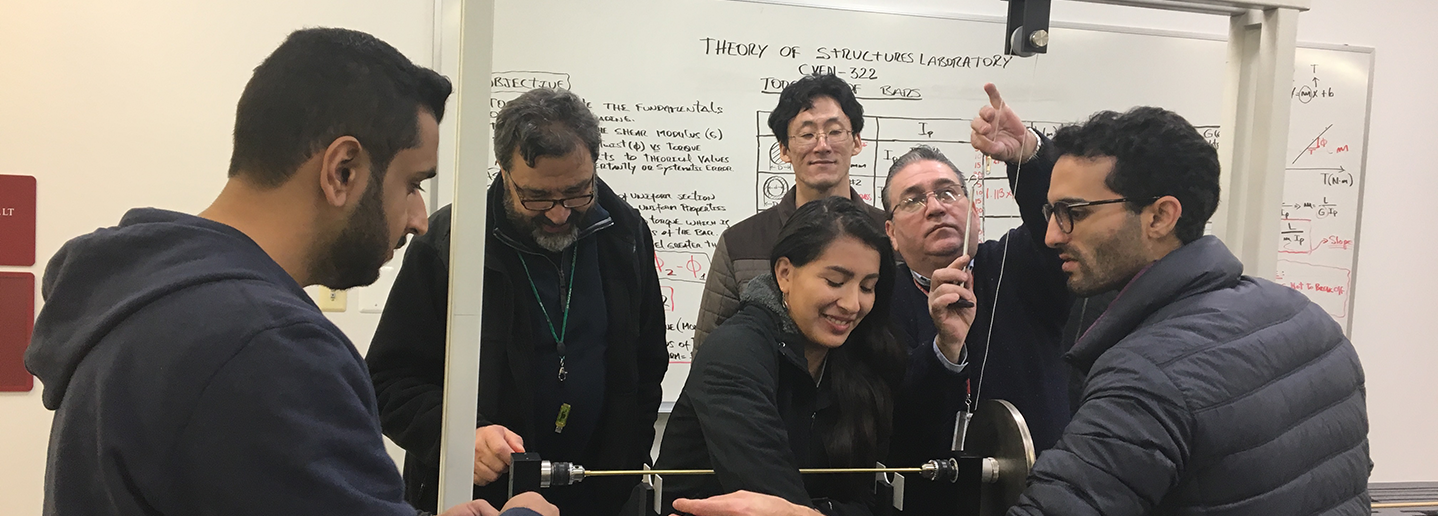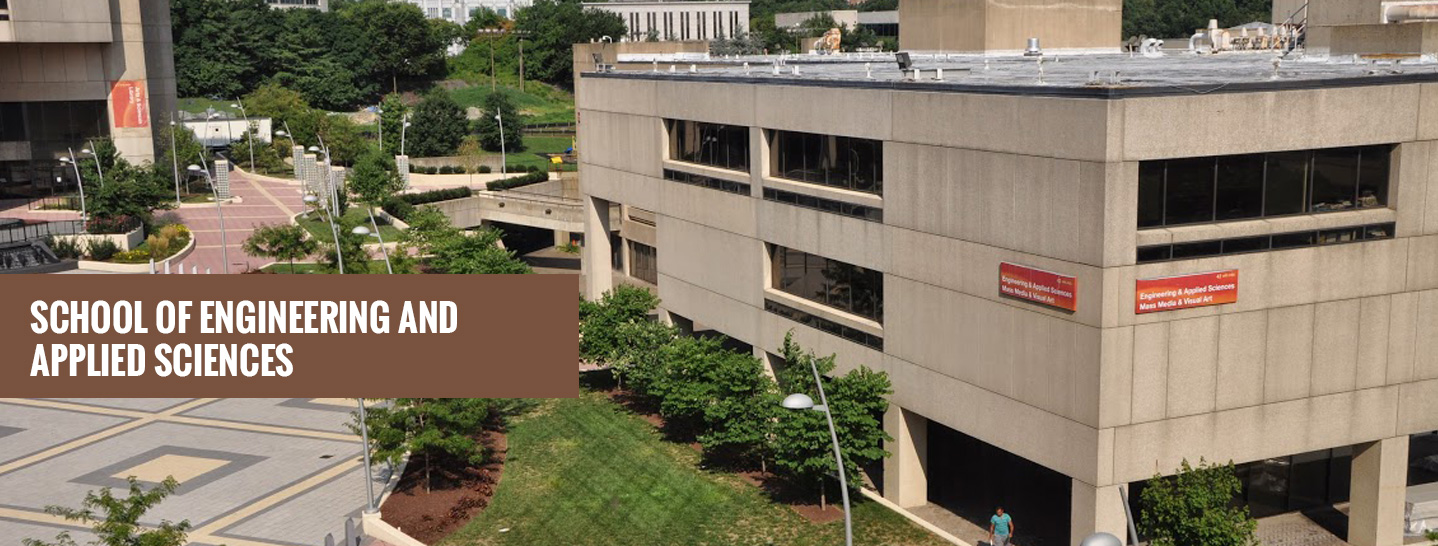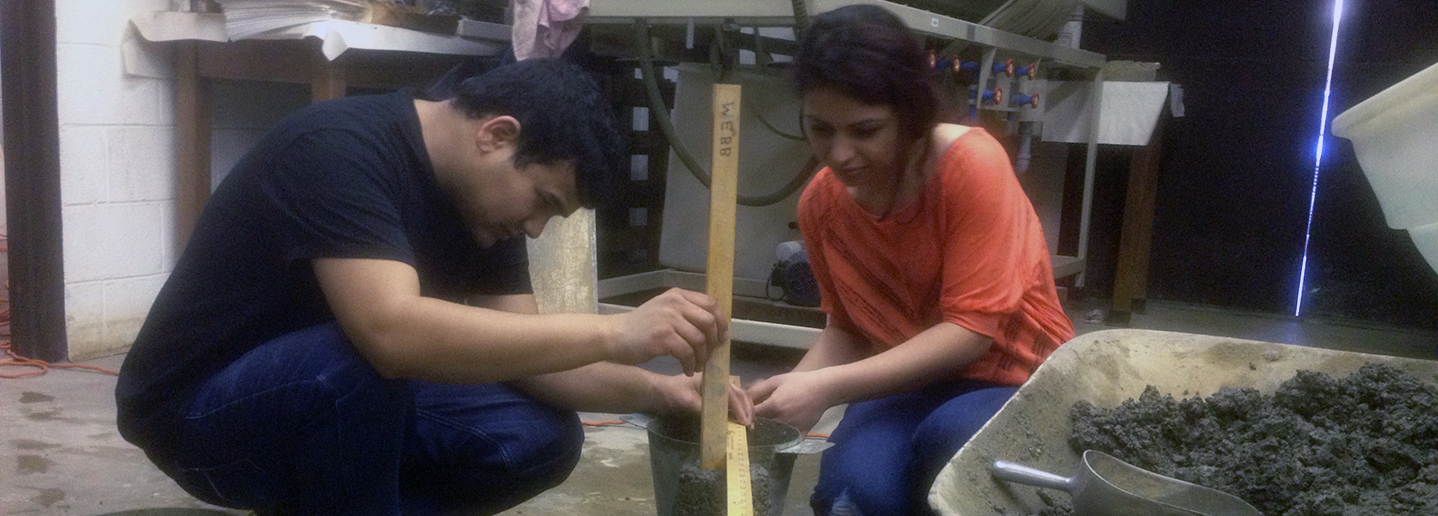Bachelor of Science in Civil Engineering
Civil Engineering is the oldest branch of the profession of engineering that deals with planning, design, construction and maintenance of the built environment on which society depends. Many of the life sustaining important things in our lives are the product of Civil Engineering. There are two broad types of civil engineer leaders: those who work in creating visible infrastructures such as buildings, highways, bridges, airports, ports, waterways, and dams; and those who work behind the scenes such as in building foundations, water treatment plants, water supply pipe systems, ecological restoration and underground drainage systems.
The program for the Bachelor of Science in Civil Engineering offers courses in the several sub-disciplines of Civil Engineering that include structural engineering, water resources engineering, geotechnical engineering, transportation engineering, and construction engineering. The Civil Engineering Program is accredited by the Engineering Accreditation Commission of ABET, http://www.abet.org.
The objective of the Civil Engineering Program is to prepare students for engineering careers and/or advanced study in Civil Engineering and to offer research and service programs for the general public. Civil Engineers have responsibility for designing various structures, including bridges, highways, and infrastructure facilities. The program places special emphasis on solving problems in urban areas, particularly in the Washington, D.C. metropolitan area. Civil Engineers are employed in both industry and governmental agencies. The demand is significantly higher than the number of graduates.
The expertise of the Civil Engineering faculty, combined with their dedication to quality of instruction, their willingness to provide individual attention to students, and their experience provide the basis for a solid fundamental engineering education.
Program of Study
- Model Plan of Study – Entering Fall 2018
- Model Plan of Study – Entering Fall 2016
-
Handout – One sheet
Program Enrollment & Graduation Data
| BS in Civil Engineering | ||||||||
|---|---|---|---|---|---|---|---|---|
| Enrollment | Fall 2016 | Fall 2017 | Fall 2018 | Fall 2019 | Fall 2020 | Fall 2021 | Fall 2022 | Fall 2023 |
| 91 | 86 | 74 | 61 | 46 | 35 | 24 | 28 | |
| Degrees Awarded | July 2015- June 2016 | July 2016 – June 2017 | July 2017 – June 2018 | July 2018 – June 2019 | July 2019 – June 2020 | July 2020 – June 2021 | July 2021 – June 2022 | July 2022 – June 2023 |
| 8 | 11 | 13 | 28 | 22 | 17 | 15 | 6 | |
ABET Accreditation Information
Program Educational Objectives
In accordance with ABET accreditation criteria and pursuant to the University’s mission statement, the following Program Educational Objectives (PEOs) have been established. During the initial years of their careers, graduates will:
PEO 1: Be successfully employed in civil engineering within the general areas of civil engineering or closely related field with companies and organizations in industry, government, non-governmental organizations, and entrepreneurial ventures.
PEO 2: Advance their knowledge of civil engineering or closely related fields to pursue graduate studies and/or professional studies.
PEO 3: Pursue professional development opportunities and career advancement through successfully earning their professional licensure [by passing Fundamentals of Engineering (FE) examination and subsequent licensure as a Professional Engineer (PE)] within six years of graduation, and/or certifications, continuing education credits, or leadership training, research opportunities, or post-graduate study.
PEO 4: Be active in service to the profession and serve as effective professional role models based on commitment to lifelong learning to meet evolving engineering challenges facing society.
Student Outcomes
Students graduating from the civil engineering program are expected to acquire the following:
- An ability to identify, formulate, and solve complex engineering problems by applying principles of engineering, science, and mathematics.
- An ability to apply the engineering design to produce solutions that meet specified needs with consideration for public health, safety, and welfare, as well as global, cultural, social, environmental, and economic factors.
- An ability to communicate effectively with a range of audiences.
- An ability to recognize ethical and professional responsibilities in engineering situations and make informed judgments, which must consider the impact of engineering solutions in global, economic, environmental, and societal contexts.
- An ability to function effectively on a team whose members together provide leadership, create a collaborative and inclusive environment, establish goals, plan tasks, and meet objectives.
- An ability to develop and conduct appropriate experimentation, analyze and interpret data, and use engineering judgment to draw conclusions.
- An ability to acquire and apply new knowledge as needed, using appropriate learning strategies.
Contact the Program Director
Dr. Bryan Higgs



